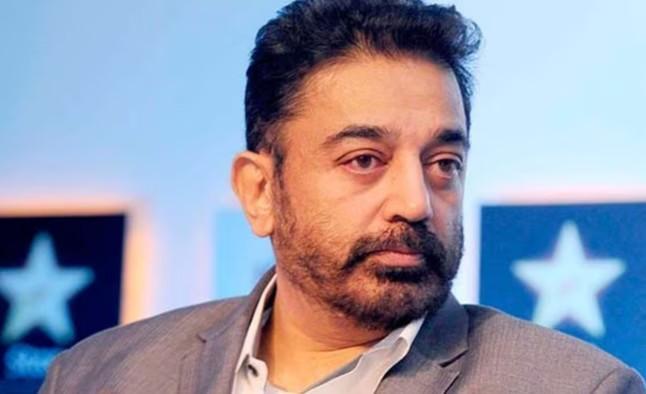
Education Only Weapon That Can Break Chains of Sanatan, Says Kamal Haasan; Sparks Row
Kamal Haasan, the actor-turned-politician and the chief of the Makkal Needhi Maiam (MNM), has sparked a row with his recent remarks against Sanatan Dharma. While speaking at an event, Haasan targeted the idea of Sanatan Dharma, which is the ancient Vedic philosophy of Hinduism, and stated that it is a “dictatorship” that needs to be broken. He went on to say that “education is the only weapon that can break the chains of dictatorship and Sanatana ideology.”
Haasan’s comments have sparked a heated debate, with many questioning the actor’s intentions and motives behind his remarks. The Bharatiya Janata Party (BJP) has slammed Haasan, accusing him of trying to please his masters in the Dravida Munnetra Kazhagam (DMK).
Haasan’s remarks came in the context of the National Eligibility cum Entrance Test (NEET), which has been a contentious issue in Tamil Nadu. The NEET has been criticized for denying education to many children from weaker sections of society. Haasan, who has been a vocal critic of the NEET, used his remarks to target the concept of Sanatan Dharma, which he believes is a major obstacle to progress and development in India.
Sanatan Dharma is a complex and multifaceted philosophy that encompasses various aspects of Hinduism, including its theology, philosophy, and cultural practices. While it is true that Sanatan Dharma has been criticized for its exclusivist and hierarchical nature, it is also a fundamental part of Indian culture and identity.
Haasan’s critics argue that his remarks are an attack on the very fabric of Indian society and culture. They believe that his comments are an attempt to create divisions and polarize society, rather than promoting unity and harmony.
On the other hand, Haasan’s supporters argue that his remarks are a necessary critique of the dominant ideology of Sanatan Dharma, which they believe is a major obstacle to progress and development in India. They argue that Haasan’s comments are an attempt to challenge the status quo and promote a more inclusive and equitable society.
The debate sparked by Haasan’s remarks highlights the complex and contested nature of Indian society and culture. It also raises important questions about the role of education in breaking down social and economic barriers, and the need for a more inclusive and equitable education system.
In recent years, there has been a growing trend towards privatization and commercialization of education in India. This has led to a significant increase in the cost of education, making it inaccessible to many children from weaker sections of society. The NEET, which was introduced in 2016, has been criticized for exacerbating this trend and denying education to many children who cannot afford to pay the fees for private coaching classes.
Haasan’s remarks have also sparked a debate about the role of the state in promoting education and social welfare. His critics argue that the state has a responsibility to provide free and compulsory education to all children, regardless of their background or socio-economic status. They believe that education is a fundamental right, and that the state has a duty to ensure that all children have access to quality education.
On the other hand, Haasan’s supporters argue that the state cannot provide free education to all children, and that the private sector has a role to play in promoting education and social welfare. They believe that the private sector can provide quality education and training to children, and that it can also help to promote social mobility and economic development.
The debate sparked by Haasan’s remarks highlights the need for a more nuanced and balanced approach to education and social welfare. It also raises important questions about the role of the state and the private sector in promoting education and social welfare, and the need for a more inclusive and equitable education system.
In conclusion, Kamal Haasan’s remarks have sparked a row over his comments against Sanatan Dharma. While Haasan’s critics argue that his remarks are an attack on Indian culture and society, his supporters believe that his comments are a necessary critique of the dominant ideology of Sanatan Dharma and a call for a more inclusive and equitable society.
The debate sparked by Haasan’s remarks highlights the complex and contested nature of Indian society and culture. It also raises important questions about the role of education in breaking down social and economic barriers, and the need for a more inclusive and equitable education system.
As we move forward, it is essential that we engage in a nuanced and balanced debate about the role of education and social welfare in promoting progress and development in India. We must also recognize the importance of promoting a more inclusive and equitable education system, and the need for a more nuanced and balanced approach to education and social welfare.






